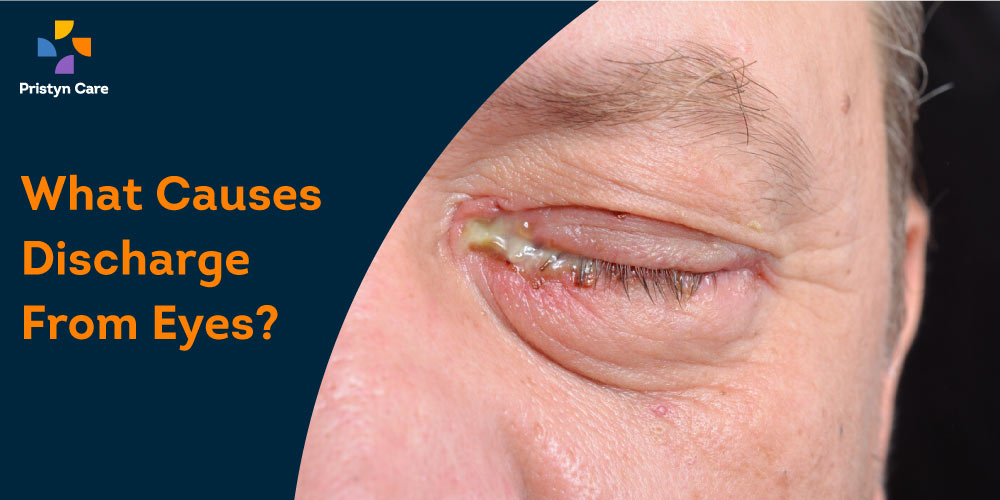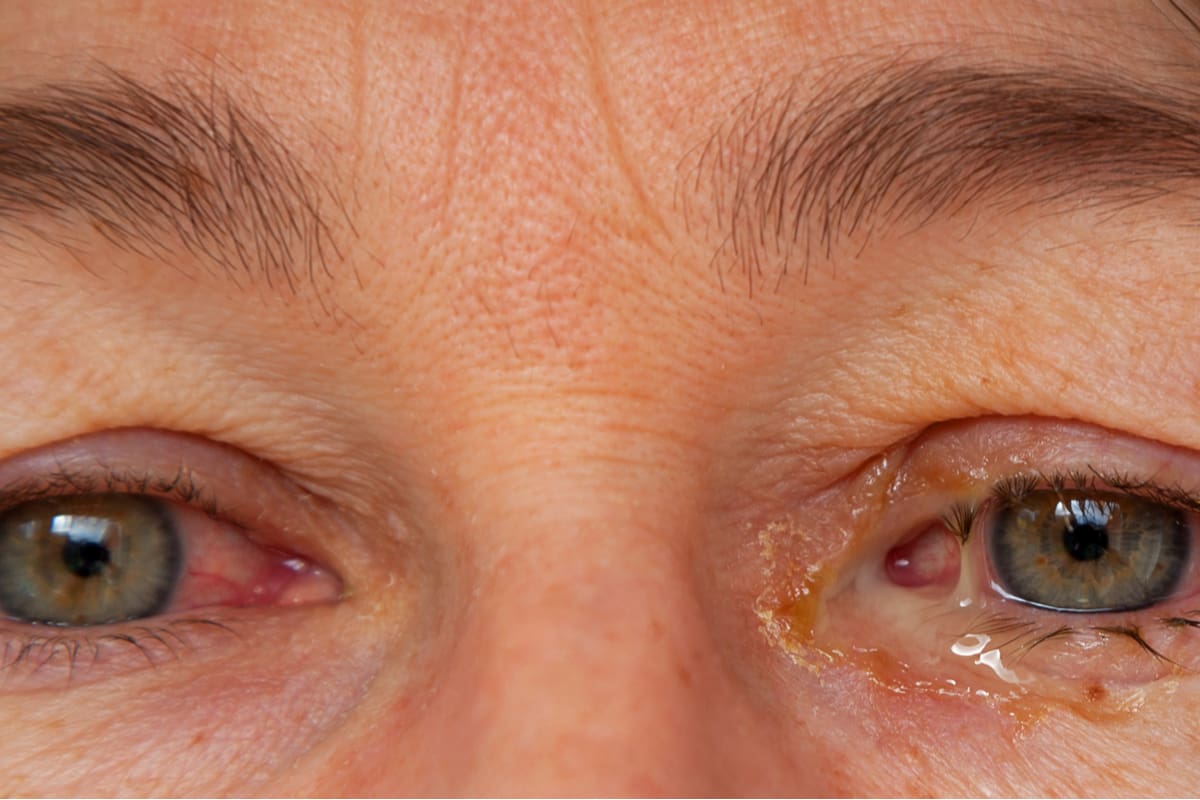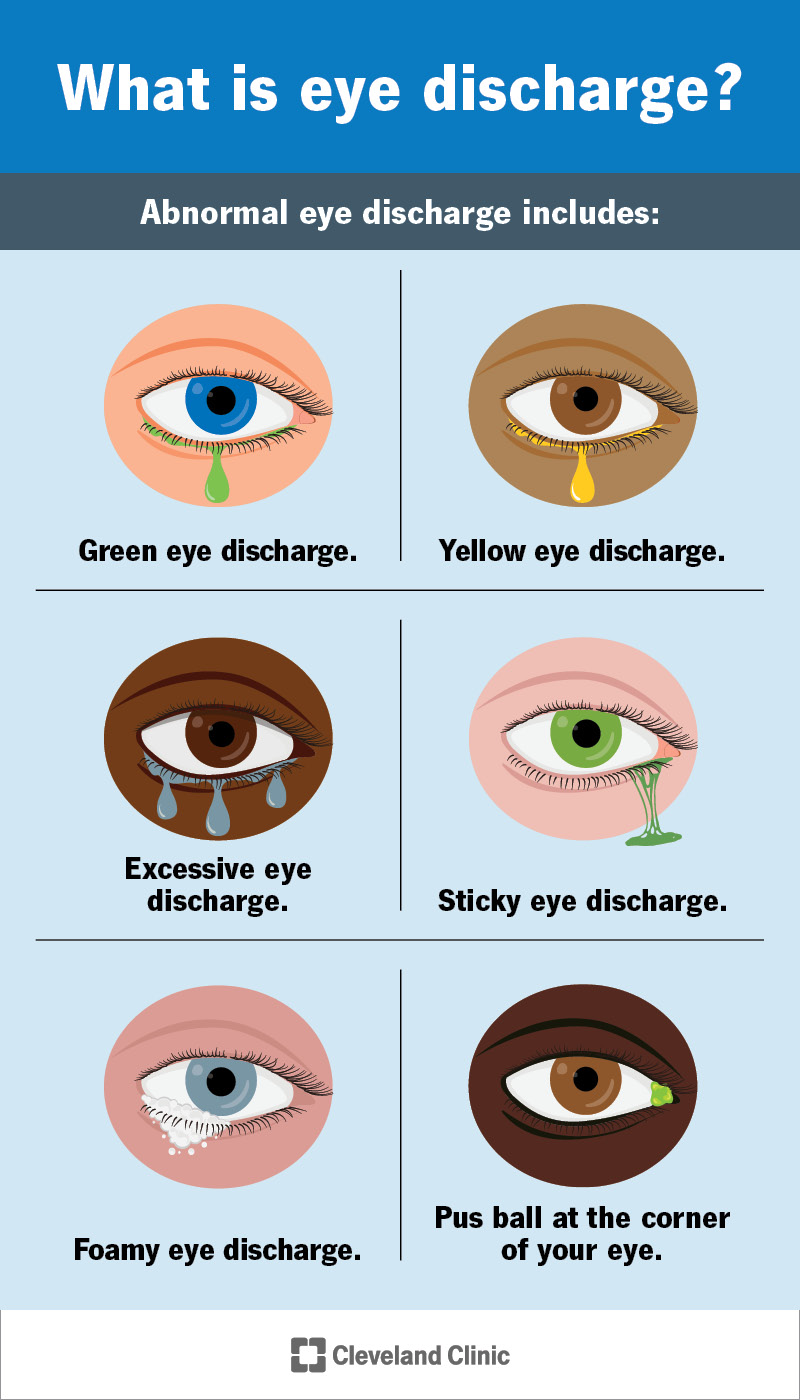Sticky Discharge From Eyes - Discharge from an eye infection varies considerably — it could be clear and watery or thick, green and sticky — so make sure you see your optometrist promptly for an accurate diagnosis and treatment. Eye discharge is a product of your eye cleaning itself. If you have sticky eyes, you have accumulated discharge — a collection of skin cells, debris, oil, and mucus — in the corner of your eyes. The condition can occur due to various conditions such as. Notice if your eye discharge has an. In most cases, eye discharge is normal and nothing to worry about. Some eye gunk is normal, especially in the morning. But having a lot of eye discharge can be a sign of inflammation or infection. Eye discharge — also known as eye mucus, goop, eye gunk, or eye boogers — may concern many people. However, if the discharge in your eye makes.
Eye discharge — also known as eye mucus, goop, eye gunk, or eye boogers — may concern many people. Some eye gunk is normal, especially in the morning. However, if the discharge in your eye makes. Discharge from an eye infection varies considerably — it could be clear and watery or thick, green and sticky — so make sure you see your optometrist promptly for an accurate diagnosis and treatment. People use the term sticky eyes to describe when discharge causes the eyelid to feel stuck together. Notice if your eye discharge has an. If you have sticky eyes, you have accumulated discharge — a collection of skin cells, debris, oil, and mucus — in the corner of your eyes. Eye discharge is a product of your eye cleaning itself. But having a lot of eye discharge can be a sign of inflammation or infection. In most cases, eye discharge is normal and nothing to worry about.
Eye discharge — also known as eye mucus, goop, eye gunk, or eye boogers — may concern many people. The condition can occur due to various conditions such as. People use the term sticky eyes to describe when discharge causes the eyelid to feel stuck together. But having a lot of eye discharge can be a sign of inflammation or infection. Discharge from an eye infection varies considerably — it could be clear and watery or thick, green and sticky — so make sure you see your optometrist promptly for an accurate diagnosis and treatment. Notice if your eye discharge has an. If you have sticky eyes, you have accumulated discharge — a collection of skin cells, debris, oil, and mucus — in the corner of your eyes. Some eye gunk is normal, especially in the morning. Eye discharge is a product of your eye cleaning itself. In most cases, eye discharge is normal and nothing to worry about.
Mucopurulent Conjunctivitis Causes, Symptoms and Treatment
Some eye gunk is normal, especially in the morning. If you have sticky eyes, you have accumulated discharge — a collection of skin cells, debris, oil, and mucus — in the corner of your eyes. The condition can occur due to various conditions such as. People use the term sticky eyes to describe when discharge causes the eyelid to feel.
What Causes Discharge From Eyes? Pristyn Care
However, if the discharge in your eye makes. The condition can occur due to various conditions such as. Discharge from an eye infection varies considerably — it could be clear and watery or thick, green and sticky — so make sure you see your optometrist promptly for an accurate diagnosis and treatment. But having a lot of eye discharge can.
Eye Discharge Causes, Treatment, and More
Eye discharge — also known as eye mucus, goop, eye gunk, or eye boogers — may concern many people. Notice if your eye discharge has an. People use the term sticky eyes to describe when discharge causes the eyelid to feel stuck together. Some eye gunk is normal, especially in the morning. If you have sticky eyes, you have accumulated.
Eye Discharge (Eye Mucus) Causes, Types & Treatment
But having a lot of eye discharge can be a sign of inflammation or infection. Eye discharge is a product of your eye cleaning itself. In most cases, eye discharge is normal and nothing to worry about. Eye discharge — also known as eye mucus, goop, eye gunk, or eye boogers — may concern many people. If you have sticky.
Doctor explains 4 causes of eye pus, discharge or sticky eyes in kids
Discharge from an eye infection varies considerably — it could be clear and watery or thick, green and sticky — so make sure you see your optometrist promptly for an accurate diagnosis and treatment. However, if the discharge in your eye makes. Eye discharge — also known as eye mucus, goop, eye gunk, or eye boogers — may concern many.
Causes of Eye Discharge and Possible Underlying Conditions
People use the term sticky eyes to describe when discharge causes the eyelid to feel stuck together. The condition can occur due to various conditions such as. Notice if your eye discharge has an. However, if the discharge in your eye makes. In most cases, eye discharge is normal and nothing to worry about.
Eye Mucus Discharge Eye Boogers
Discharge from an eye infection varies considerably — it could be clear and watery or thick, green and sticky — so make sure you see your optometrist promptly for an accurate diagnosis and treatment. However, if the discharge in your eye makes. Some eye gunk is normal, especially in the morning. Eye discharge is a product of your eye cleaning.
Eye Discharge Causes, Associated Conditions, and Treatments 1MD
Eye discharge — also known as eye mucus, goop, eye gunk, or eye boogers — may concern many people. In most cases, eye discharge is normal and nothing to worry about. Eye discharge is a product of your eye cleaning itself. But having a lot of eye discharge can be a sign of inflammation or infection. The condition can occur.
Sticky Eyes What It Is and How to Properly Manage It The Eye News
In most cases, eye discharge is normal and nothing to worry about. If you have sticky eyes, you have accumulated discharge — a collection of skin cells, debris, oil, and mucus — in the corner of your eyes. Some eye gunk is normal, especially in the morning. Eye discharge — also known as eye mucus, goop, eye gunk, or eye.
Ask a Eye Online for Sticky Discharge From Both Eyes Of 2 Months
Discharge from an eye infection varies considerably — it could be clear and watery or thick, green and sticky — so make sure you see your optometrist promptly for an accurate diagnosis and treatment. But having a lot of eye discharge can be a sign of inflammation or infection. Some eye gunk is normal, especially in the morning. People use.
In Most Cases, Eye Discharge Is Normal And Nothing To Worry About.
But having a lot of eye discharge can be a sign of inflammation or infection. The condition can occur due to various conditions such as. Eye discharge — also known as eye mucus, goop, eye gunk, or eye boogers — may concern many people. Notice if your eye discharge has an.
Some Eye Gunk Is Normal, Especially In The Morning.
Eye discharge is a product of your eye cleaning itself. However, if the discharge in your eye makes. Discharge from an eye infection varies considerably — it could be clear and watery or thick, green and sticky — so make sure you see your optometrist promptly for an accurate diagnosis and treatment. People use the term sticky eyes to describe when discharge causes the eyelid to feel stuck together.






:max_bytes(150000):strip_icc()/eye-mucus-types-3422108_color2-5b95bba0c9e77c0082f5eeb0.png)


